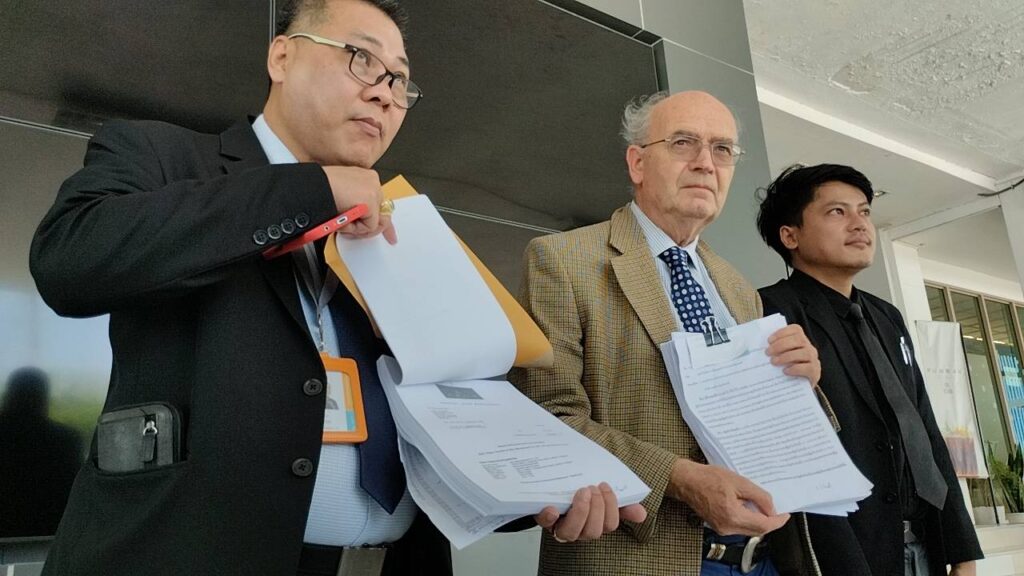A British man recently made the news after going to the Thailand Consumers Council to report a condominium project in Koh Samui would not provide him legal ownership documents despite handing them THB15 million. It turns out he was one of several foreign buyers duped in this scam.
Details of what exactly happened remain unclear but here is what has been confirmed. A group targeted foreign buyers claiming they could help them purchase luxury condominiums in Samui while being exempt from paying land taxes and other fees. In some cases, buyers were given forged documents but were never able to register their ownership with relevant legal authorities.
The reality is that these unfortunate individuals never actually owned anything and were the victim of a scheme targeting folks unfamiliar with local real estate laws. It was another reminder that Thailand property scams are still out there even though the country has made progress in weeding these out.
For those looking at real estate in the Kingdom, it is vital to have your guard up to ensure this doesn’t happen to you. Here is a look at how you can avoid Thailand property scams.
Also Interesting: Can foreigners receive a home loan in Thailand?
How to avoid Thailand property scams
For starters, you will see a lot of blanket statements out there as it relates to Thailand property scams. These include:
- Don’t buy off-plan
- Only buy from a developer listed on the stock exchange
- Visit the site in person
- Work with a real estate agent
The problem is that none of these are surefire methods to avoid problems. Moreover, you may be unnecessarily limiting your real estate search, especially in locations like Phuket and Samui which have very different markets from Bangkok. Finally, the ones making these statements tend to be individuals with a vested interest in you doing the opposite. For example, those stating you should only buy from a SET-listed developer tend to be agents that work with those firms.
1) Never deal with a third party

The biggest issue in Thailand by far is individuals acting as intermediaries for properties. They have zero authority to sell what is being advertised or, in some cases, aren’t selling anything at all.
The latter is extremely problematic. Traditionally, this involves a person or individual offering to sell you a condominium and villa. That property either doesn’t exist or is real but will never be transferred to you. There may even be a physical condo or villa that you can stay at. In reality, the unit has likely been “sold” to multiple people.
Upon payment, you will either be given fake documents or be told various reasons why a transfer cannot take place. As we saw with the recent scam in Koh Samui, this is something that can go on for years.
To avoid this from happening to you, find a reputable real estate agent or developer who can guide you through the process. Third-party representatives will usually try to rush you into transferring cash as soon as possible while a property professional will focus on your needs.
2) Don’t trust tax claims
Anyone claiming they will pay your property taxes in Thailand is banking on the fact that you probably don’t understand the country’s taxation system. For starters, there is no annual tax for residential property less than THB50 million so most owners will already be exempt.
Beyond that, there is a housing and rent tax. The entity operating your rental can provide you with documentation of income, but you will still need to handle the tax yourself. Projects may also have various annual fees which are the owner’s responsibility. Someone claiming to pay these should be able to provide you with a receipt from the company managing the project.
One thing to note is that the seller can cover several taxes and fees during the buying process. The transaction won’t be closed until these have been settled which ensures everything is within the law. Don’t accept any gentlemen’s agreement where the seller states they will pay you back later if you clear the fee first.
Related: Understanding the impact of Thailand’s land and building tax reduction
3) Look for a track record
Those thinking about buying from a developer directly should focus on track record. It is important to qualify this, however. There is no need to limit your search only to homebuilders with a large number of completed projects. There are countless boutique firms in resort areas that are just as good as the big guys.
You will also find landowners and architects who simply prefer to build on a smaller scale. The key here is to find some sort of track record or proof of concept. This can be other completed villas at the site you are buying yours or work done elsewhere. Ultimately, you want to see that they have succeeded as a developer somewhere.
4) Avoid returns on an uncompleted project
While not common, you may find guaranteed rental returns being offered when you purchase a unit at a project that is uncompleted and has no means to generate revenue. This is problematic for any number of reasons. It is best to just avoid these altogether.
5) Make sure there is a contract and have a lawyer review it

You don’t need a lawyer involved in the entire real estate buying process in Thailand. However, paying them for a few hours of work to review your purchase agreement is strongly advised. A legal professional can give you information on your rights should something go wrong as well as details on items such as force majeure.
Also Interesting: Do expats really need a will made in Thailand?
Final thoughts on Thailand property scams
When it comes to avoiding Thailand property scams, the best piece of advice I can give you is this: use common sense. If something doesn’t seem right, address it immediately. Too often, you will see those being scammed waiting years before reporting anything. By then, it is usually too late and your money is long gone.

































